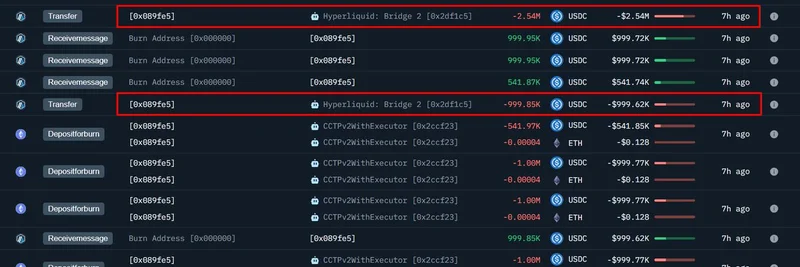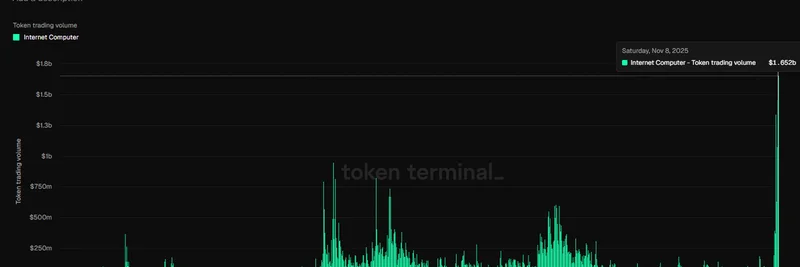In the fast-paced world of crypto, where hype often trumps fundamentals, a recent tweet from Nico (@nicodotfun) has ignited a conversation about what really drives adoption in decentralized finance. Posted on September 24, 2025, the tweet highlights the contrast between Aster and Hyperliquid, two prominent perpetual decentralized exchanges (perp DEXs). For those new to the term, a perp DEX is a platform where you can trade perpetual futures contracts—essentially bets on asset prices without expiration dates—directly on the blockchain, without needing a central authority.
Nico's tweet reads: "We are currently seeing how much people truly care about 'the tech'. Aster as a not super truly onchain perp dex vs hyperliquid being a more legit one." It's a subtle jab at how Aster, despite its rapid rise, might not be as fully onchain as it claims, compared to Hyperliquid, which prides itself on being a dedicated Layer 1 blockchain optimized for trading.
To break it down simply: "Onchain" means all transactions and order books happen directly on the blockchain, ensuring transparency and decentralization. Hyperliquid (hyperliquid.xyz) is built from the ground up as a high-performance chain with fully onchain order books, supporting over 100 perps and spot assets. It uses its own HyperBFT consensus for sub-second finality, making it a darling among tech purists. On the other hand, Aster (asterdex.com), which emerged in 2025 from the merger of Astherus and APX Finance, operates across multiple chains like BNB Chain, Ethereum, and Arbitrum. It offers low fees, high leverage, and features like hidden orders, but critics argue it's less "truly onchain" due to potential offchain elements in its setup.
The tweet has garnered attention, with 210 views and several replies that add layers to the debate. One user, chit (@2442lll), simply stated, "Technology is important," echoing the sentiment that fundamentals shouldn't be overlooked. Another, Watchdog (@WatchdogBB), dropped a cryptic "CZ," likely referring to Changpeng Zhao, the former Binance CEO, whose recent endorsement has propelled Aster's visibility. Indeed, reports from The Block note that Aster has even surpassed Hyperliquid in 24-hour trading volume following this buzz.
Busy Panda (@Crypt0Panda) chimed in with, "both are same in terms of centralization," suggesting that neither might be as decentralized as advertised. This points to a broader issue in DeFi: many platforms claim full decentralization but still rely on centralized components for efficiency. Finally, biggzi (@biggzi) promoted an alternative, "$URA" from UranusPerps, claiming it's the only truly permissionless perp DEX on Solana, allowing peer-to-peer trades of any token directly onchain. They even mentioned that Solana co-founder Anatoly Yakovenko and investor Tom follow the project.
This thread comes at a time when perp DEXs are booming. According to Bybit's insights, Aster's strategic innovations and timing have allowed it to challenge Hyperliquid's dominance, with Hyperliquid recording $200 billion in September trading volume versus Aster's $20 billion. Yet, as CryptoSlate reports, newcomers like Avantis and Aster are drawing TVL (total value locked) away from established players, even in a down market.
SafePal's recent partnership with Aster, as covered by Cointelegraph, aims to bring perp trading to over 25 million users, further blurring the lines between tech purity and mass adoption. Meanwhile, Hyperliquid's grand vision, as outlined in Binance Square, is to create a blockchain for all finance, but it faces competition from emerging players like edgeX, which set revenue records in September 2025.
So, does the crypto community really care about "the tech," or is it all about liquidity, endorsements, and quick gains? Nico's tweet suggests we're witnessing a test case. As meme tokens and DeFi projects continue to evolve, platforms like Aster and Hyperliquid will need to balance innovation with true decentralization to stay ahead. For traders, it's a reminder to look beyond the hype—dive into the whitepapers, check the chain, and decide what "legit" means to you.
If you're exploring perp DEXs, start with the basics: understand risks like smart contract vulnerabilities, as noted in Hyperliquid's docs. And keep an eye on upcoming contenders— the space is heating up fast.


